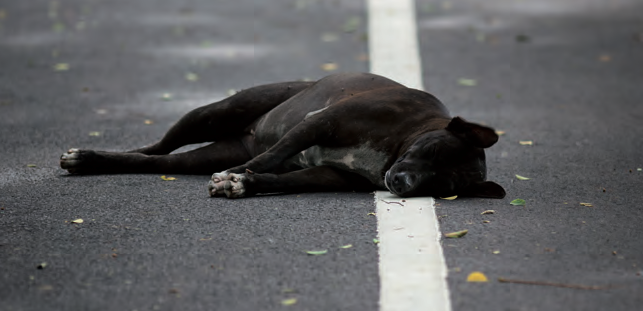
YOUR DOG DIES
it gets run over by a van.
you find it at the side of the road
and bury it.
you feel bad about it.
you feel bad personally,
but you feel bad for your daughter
because it was her pet,
and she loved it so.
she used to croon to it
and let it sleep in her bed.
you write a poem about it.
you call it a poem for your daughter,
about the dog getting run over by a van
and how you looked after it,
took it out into the woods
and buried it deep, deep,
and that poem turns out so good
you’re almost glad the little dog
was run over, or else you’d never
have written that good poem.
then you sit down to write
a poem about writing a poem
about the death of that dog,
but while you’re writing you
hear a woman scream
your name, your first name,
both syllables,
and your heart stops.
after a minute, you continue writing.
she screams again.
you wonder how long this can go on.
§
viene investito da un furgone.
lo trovi sul ciglio della strada
e lo seppellisci.
ti senti male per lui.
ti senti male personalmente,
ma ti senti male per tua figlia
perché era il suo cucciolo,
e gli voleva così bene.
canticchiava per lui
e lo lasciava dormire nel suo letto.
scrivi una poesia su di lui.
dici che è una poesia per tua figlia,
sul cane che viene investito da un furgone
e su di te che l’hai presa così a cuore
lo hai portato nei boschi
e l’hai seppellito profondamente,
e quella poesia riesce così bene
che sei quasi contento che il cagnolino
sia stato investito, altrimenti non avresti
mai scritto quella bella poesia.
poi ti siedi a scrivere
una poesia sullo scrivere poesie
sulla morte di quel cane,
ma mentre scrivi
senti una donna che grida
il tuo nome, il nome di battesimo,
le due sillabe,
e il tuo cuore si ferma.
dopo un minuto, seguiti a scrivere.
lei grida di nuovo.
ti chiedi fino a quando andrà avanti.
RAYMOND CARVER








